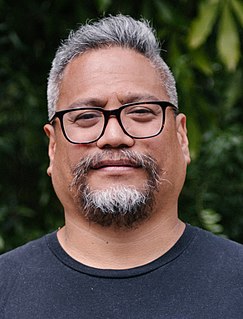Related Research Articles

Winston Raymond Peters is a New Zealand politician serving as the leader of New Zealand First since its foundation in 1993. Peters served as the 13th deputy prime minister of New Zealand from 1996 to 1998 and 2017 to 2020, the minister of Foreign Affairs from 2005 to 2008 and 2017 to 2020, and the treasurer of New Zealand from 1996 to 1998. He was a Member of Parliament (MP) from 1979 to 1981, 1984 to 2008 and 2011 to 2020.

ACT New Zealand, known simply as ACT, is a right-wing, classical-liberal political party in New Zealand. According to former party leader Rodney Hide, ACT's values are "individual freedom, personal responsibility, doing the best for our natural environment and for smaller, smarter government in its goals of a prosperous economy, a strong society, and a quality of life that is the envy of the world". Young ACT is its affiliated, albeit unofficial, student wing.

The 1999 New Zealand general election was held on 27 November 1999 to determine the composition of the 46th New Zealand Parliament. The governing National Party, led by Prime Minister Jenny Shipley, was defeated, being replaced by a coalition of Helen Clark's Labour Party and the smaller Alliance. This marked an end to nine years of the Fourth National Government, and the beginning of the Fifth Labour Government which would govern for nine years in turn, until its loss to the National Party in the 2008 general election. It was the first New Zealand election where both major parties had female leaders.

Metiria Leanne Agnes Stanton Turei is a former New Zealand politician. She was a Member of Parliament from 2002 to 2017 and the female co-leader of the Green Party of Aotearoa New Zealand from 2009 to 2017. Turei resigned from the co-leader position on 9 August 2017 amid a political controversy arising from her admission to lying to the Ministry of Social Development to receive higher payments when she was on the Domestic Purposes Benefit and later, to being enrolled to vote in an electorate where she was not eligible when she was 23.

The Māori Party is a political party in New Zealand advocating indigenous rights and centre-left policies. It contests the Māori electorates, in which its main rival is the centre-left Labour Party.

The 48th New Zealand Parliament was a term of the Parliament of New Zealand. Its composition was determined at a general election held on 17 September 2005. The new parliament met for the first time on 7 November 2005. It was dissolved on 3 October 2008.

The New Zealand electoral system has been mixed-member proportional (MMP) since the 1996 election. MMP was introduced following a referendum in 1993. It replaced the first-past-the-post (FPP) system New Zealand had previously used for most of its history. New Zealanders elect their members of parliament (MPs) with two votes. The first vote is for a candidate from an electorate. The second vote is used to elect ranked party lists.
The New Zealand Youth Parliament is a national event in New Zealand, held once in each term of parliament. The event is used to promote the civic and community engagement of New Zealand youth. The event has been held since 1994, and takes place at the New Zealand Parliament Buildings. The latest Youth Parliament, the 9th Youth Parliament, took place on 16 and 17 July 2019.

David James Clendon is a New Zealand politician and former member of the Green Party. Following the resignation of Sue Bradford, Clendon became a member of the House of Representatives on 2 November 2009.

Gareth Thomas Llewelyn Hughes is a New Zealand politician and member of the Green Party. He was a member of the New Zealand Parliament for eleven years, from 2010 to 2020. He first took a seat part way through the 49th Parliament as the next person on the Green party list following the retirement of Jeanette Fitzsimons in February 2010. He did not stand for re-election in the 2020 general election.

Julie Anne Genter is an American-born New Zealand politician who is a member of the House of Representatives representing the Green Party of Aotearoa New Zealand. She served as the Minister for Women, Associate Minister for Health and Associate Minister for Transport during the first term of the Sixth Labour Government. She holds dual citizenship of New Zealand and the United States.

David Breen Seymour is a New Zealand politician serving as the Member of Parliament (MP) for Epsom and Leader of ACT New Zealand since 2014.

James Peter Edward Shaw is a New Zealand politician and a leader of the Green Party of Aotearoa New Zealand. Voters elected Shaw to the New Zealand parliament at the 2014 general election as a list representative of the Green Party. The party selected Shaw as its male co-leader in May 2015. Following Metiria Turei's resignation in August 2017, Shaw became the party's sole leader for the duration of the 2017 general election.

The 2020 New Zealand general election was held on Saturday 17 October 2020 to determine the composition of the 53rd parliament. Voters elected 120 members to the House of Representatives, 72 from single-member electorates and 48 from closed party lists. Two referendums, one on the personal use of cannabis and one on euthanasia, were also held on the same day. Official results of the election and referendums were released on 6 November.

Chlöe Charlotte Swarbrick is a New Zealand politician and entrepreneur. Following a high-profile but unsuccessful run for the 2016 Auckland mayoral election, she became a parliamentary candidate for the Green Party of Aotearoa New Zealand, standing in the 2017 New Zealand general election and was elected as a member of the New Zealand Parliament at the age of 23. In the 2020 election, Swarbrick was elected as the Member of Parliament for Auckland Central, becoming the second Green Party MP to win an electorate seat in the history of the party, and the first minor party MP since the inception of MMP to win a general electorate seat without a tacit endorsement from a major party leader.

Teanau Tuiono is a New Zealand politician. In 2020 he became a Member of Parliament in the House of Representatives as a representative of the Green Party of Aotearoa New Zealand.

This page lists candidates contesting electorates in the 2020 New Zealand general election.

The 2020 New Zealand general election held on Saturday, 17 October 2020 determined the membership of the 53rd New Zealand Parliament. It was previously scheduled for 19 September, before being delayed due to the COVID-19 pandemic. Parliament has 120 seats, and 72 will be filled by electorate MPs, with the remaining 48 from ranked party lists. Parties were required to submit their party lists to the Electoral Commission by 17 September and the lists were publicly released on 19 September, though some parties published their lists earlier than that. This page lists candidates by party, including their ranking on a list.
Debbie Anne Ngarewa-Packer is a New Zealand politician. She is a Member of Parliament and co-leader of the Māori Party, and is the leader and chief executive of the Ngāti Ruanui iwi. She stood for the Māori Party during the 2020 election in the seat of Te Tai Hauāuru. While she failed to win the electorate, she was placed first on the Māori Party list, where she won a list seat once the special votes were counted.

Ricardo Menéndez March is a Mexican-born New Zealand activist and politician who, since 2020, is a Member of Parliament for the Green Party of Aotearoa New Zealand in the House of Representatives.
References
- 1 2 "Green Party candidate makes pointed dig at 'arbitrary' voting age while celebrating 18th birthday". 1 News. 25 February 2020.
- ↑ https://policy.nz/parties/Green-Party
- 1 2 Elliott, John (2020). "Green candidate for Mt Albert – Luke Wijohn". Ponsonby News.
- 1 2 3 Franks, Josephine (19 February 2020). "Greens select school strike leader Luke Wijohn for Mt Albert in 2020 election". Stuff.co.nz.
- ↑ "Youth have 'woken up' New Zealand on climate, says Amnesty International". Stuff.co.nz. 17 September 2019.
- ↑ Dixon, Sophie (18 July 2019). "Youth Parliament 2019 declares climate emergency". RNZ.
- ↑ Aschoff, Kate (23 July 2019). "Youth MPs send climate change hurry-up to MPs". RNZ.
- ↑ Walls, Jason (19 February 2020). "Green Party MP hopeful one of 14 youth kicked out of, and banned, from Parliament last year". New Zealand Herald.
- ↑ "Mt Albert – Official Result". Electoral Commission.
- ↑ "Party Lists of Successful Registered Parties". Electoral Commission.
- ↑ "Covid 19 Delta outbreak: Police threaten to arrest ex-Greens candidate Luke Wijohn who films them making late night arrest". New Zealand Herald. 28 August 2021.
- ↑ Ensor, Jamies (8 October 2020). "NZ Election 2020: Teenagers Luke Wijohn, William Wood on why they're standing for Parliament". Newshub.
- ↑ Tyson, Jessica (23 October 2020). "Youngest Green Party candidate reflects on first time standing in election". Te Ao Maori News.